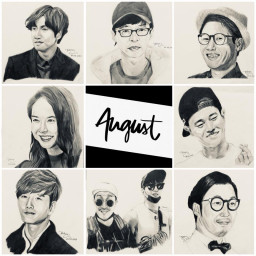THE SEARCH FOR ARTIFICIAL INTELLIGENCE
It is one of the most evocative phrases in the lexicon of science: artificial intelligence, ‘AI’, the creation of machines that can think. Just the mention of it conjures up images of HAL, the all-too intelligent computer in 2001: A Space Odyssey, and C3PO, the chatty, batty robot from Star Wars.For over half a century, computer scientists have been working towards creating such machines, spending billions of pounds in the attempt. And hanging over their efforts has been a challenge set by a British mathematician widely regarded as the father of AI research: Alan Turing.During the 1930s, Turing showed, in theory at least, that a ‘universal machine’ could be built, capable of performing all the tasks of any special-purpose computing machine. After war-time work on code- breaking, Turing helped to turn his discovery into the reality of an electronic computer. But he also believed his proof meant that computers could mimic the action of the human mind. In 1951, Turing published a prediction: by the end of the century, computers would be able to hold a five-minute conversation with humans and fool 30 percent of them into believing they were dealing with another human being.It is a deadline that has come and gone, along with huge amounts of funding. Yet no computer is remotely close to passing the ‘Turing Test’. What went wrong? Why has no one succeeded in creating AI? In fact, AI is already here, earning its keep in banks, airports, hospitals, factories – even our own home and car. It may not be quite what many were led to expect, but then the story of real-life AI is one of misplaced dreams, bitter feuds and grant-grabbing hype.Today’s computer scientists divide into two broad camps on the issue of AI. The pragmatists see AI as a means to creating machines that do for thinking what engines have done for physical labour – taking on tasks we humans would prefer not to do: spending endless hours scouring heaps of market data for trends or scanning piles of medical images for signs of disease.Then there are the visionaries, still wedded to Turing’s challenge and trying to bring the sci-fi image to life. For them, AI is all about computerised ‘assistants’ that solve your printer problems and cheeky- chappy robots that talk to strangers. There are some who even see AI as the route to understanding the workings of the human mind.
Question 36. Which would best serve as the title for the passage?A. Turing test challenge B. What is Artificial Intelligence?C.The search for Artificial Intelligence D. Alan Turing: The father of AI research
Question 37. The phrase “conjures up” in paragraph 1 mostly means _________A. call B. brings to mind C. ignores D. stirs up
Question 38. According to paragraph 3, Turing believed that _________A. computers could copy human thought processB. computer research needed more fundingC. computers would eventually replace human beingsD. computers might be used for immoral purposes
Question 39. The word “them” in paragraph 3 refers to _______A. computers B. humans C. scientist D. machines
Question 40. The word “camps” in paragraph 5 is closest in meaning to _________A. tents B. bases C. barracks D. factions
Question 41. Which of the following is true, according to the passage?A. In the 1930s, Turing demonstrated that it was possible to create a 'universal machine'.B. Computer scientists have been working to construct Artificial Intelligence for over a century.C. Due to different views on AI, computer scientists are split into two groups.D. Turing claimed machines could speak to people and trick them into thinking they were communicating with another human being.
Question 42. Which of the following can be inferred from the passage?A. We already have been using Artificial Intelligence in our daily life.B. Human mind is more brilliant than Artificial Intelligence.C. Computer Scientists have failed in making a “universal machine”.D. Nobody can create a computer that can pass the “Turing Test”.
THE SEARCH FOR ARTIFICIAL INTELLIGENCE
It is one of the most evocative phrases in the lexicon of science: artificial intelligence, ‘AI’, the creation of machines that can think. Just the mention of it conjures up images of HAL, the all-too intelligent computer in 2001: A Space Odyssey, and C3PO, the chatty, batty robot from Star Wars.For over half a century, computer scientists have been working towards creating such machines, spending billions of pounds in the attempt. And hanging over their efforts has been a challenge set by a British mathematician widely regarded as the father of AI research: Alan Turing.During the 1930s, Turing showed, in theory at least, that a ‘universal machine’ could be built, capable of performing all the tasks of any special-purpose computing machine. After war-time work on code- breaking, Turing helped to turn his discovery into the reality of an electronic computer. But he also believed his proof meant that computers could mimic the action of the human mind. In 1951, Turing published a prediction: by the end of the century, computers would be able to hold a five-minute conversation with humans and fool 30 percent of them into believing they were dealing with another human being.It is a deadline that has come and gone, along with huge amounts of funding. Yet no computer is remotely close to passing the ‘Turing Test’. What went wrong? Why has no one succeeded in creating AI? In fact, AI is already here, earning its keep in banks, airports, hospitals, factories – even our own home and car. It may not be quite what many were led to expect, but then the story of real-life AI is one of misplaced dreams, bitter feuds and grant-grabbing hype.Today’s computer scientists divide into two broad camps on the issue of AI. The pragmatists see AI as a means to creating machines that do for thinking what engines have done for physical labour – taking on tasks we humans would prefer not to do: spending endless hours scouring heaps of market data for trends or scanning piles of medical images for signs of disease.Then there are the visionaries, still wedded to Turing’s challenge and trying to bring the sci-fi image to life. For them, AI is all about computerised ‘assistants’ that solve your printer problems and cheeky- chappy robots that talk to strangers. There are some who even see AI as the route to understanding the workings of the human mind.
Question 36. Which would best serve as the title for the passage?A. Turing test challenge B. What is Artificial Intelligence?C.The search for Artificial Intelligence D. Alan Turing: The father of AI research
Question 37. The phrase “conjures up” in paragraph 1 mostly means _________
A. call
B. brings to mind
C. ignores
D. stirs up
Question 38. According to paragraph 3, Turing believed that _________
A. computers could copy human thought process
B. computer research needed more fundingC. computers would eventually replace human beingsD. computers might be used for immoral purposes
Question 39. The word “them” in paragraph 3 refers to _______
A. computers B. humans C. scientist D. machines
Question 40. The word “camps” in paragraph 5 is closest in meaning to _________
A. tents B. bases C. barracks D. factions
Question 41. Which of the following is true, according to the passage?
A. In the 1930s, Turing demonstrated that it was possible to create a 'universal machine'.
B. Computer scientists have been working to construct Artificial Intelligence for over a century.
C. Due to different views on AI, computer scientists are split into two groups.
D. Turing claimed machines could speak to people and trick them into thinking they were communicating with another human being.
Question 42. Which of the following can be inferred from the passage?
A. We already have been using Artificial Intelligence in our daily life.
B. Human mind is more brilliant than Artificial Intelligence.
C. Computer Scientists have failed in making a “universal machine”.
D. Nobody can create a computer that can pass the “Turing Test”.










